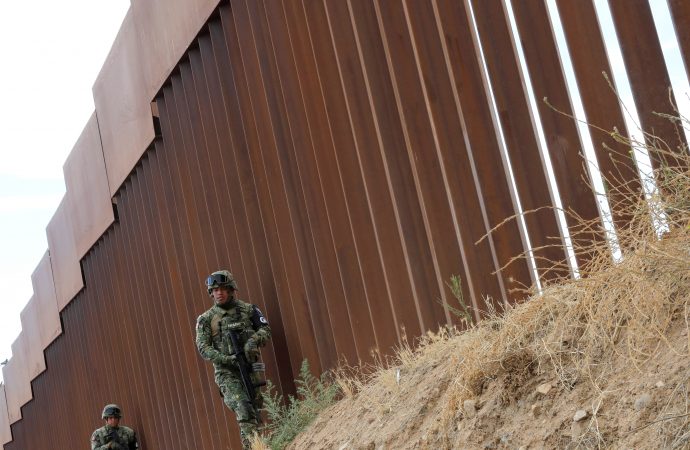
By Christopher White, National Correspondent
NEW YORK — President Donald Trump’s decision to deny asylum seekers entrance at the U.S. southern border has left more than 60,000 people in limbo and exacerbated problems fueled by the global pandemic, according to a new report.
“Stranded: The Impact of U.S. Policies on Asylum Seekers,” was released last week by Jesuit Refugee Service/USA (JRS/USA) and chronicles testimonials of individuals from Honduras, El Salvador, Cuba, and as far away as the Democratic Republic of Congo, that have been denied entry to the U.S. and are stuck in Mexico as they await a potential date for an asylum hearing.
Report author Giulia McPherson, director of Advocacy and Operations for JRS/USA said that the brunt of such a decision is being felt in a particular way in Mexico, where the local government has had to strain already limited resources to deal with those turned away in the U.S. while also forced to respond to new arrivals at its own southern border with Guatemala.
“Migrants continue to arrive at the southern border of Mexico,” she told The Tablet. “Individuals who are seeking safety are desperate to find opportunities to procure safety, and the overall capacity is strained.”
“COVID has impacted their ability to respond to those needs,” she added.

As documented in the report’s findings, since March 20, when the U.S. announced they would end asylum for new arrivals, more than 20,000 migrants have been expelled from the U.S. without the opportunity to apply for asylum and another 64,000 remain in limbo due to the Migrant Protection Protocols (MPP), more commonly known as “Remain in Mexico,” which forces asylum seekers to wait in Mexico until their claim can be processed.
Those claims are new pending indefinitely as most courts have been shuttered and the Department of Homeland Security (DHS) has announced an across the board delay of court dates for another month.
For McPherson, such a move is “the latest opportunity we’ve seen to limit access to asylum,” by the Trump administration and is one of a long series of efforts to crack down on new arrivals.
She rejects the notion that this is a necessary step for public health during the coronavirus pandemic, saying that such a justification is merely masking an agenda of closing the border that the president and his team have had since his election.
“There are absolutely things the government can do to both protect the public health,” she told The Tablet, “while also allowing asylum to be offered.”
Caitlin-Marie Ward, senior advisor on migration at the Jesuit Conference Office of Justice and Ecology, concurred, noting that this is “an opportunity for the U.S. to find creative solutions.”

She told The Tablet that faith communities have long been the ones who are most vocal about safety and health conditions of migrants, noting that “the overcrowded facilities have created unsanitary conditions that have led to a rapid spread of diseases,” and that while there are public health concerns, “that has more to do with how CBP [U.S. Customs and Border Patrol] has chosen to continue their operations.”
Ward, along with Father Ted Penton, Secretary of the Office of Justice and Ecology at the Jesuit Conference of Canada and the United States, also rejected the idea that public health is really what’s motivating the Trump administration.
“The March decision was the final nail in a coffin they’d been building for a long time,” said Penton, pointing out that even that name of the policy “Migrant Protection Protocol,” was a “cynical euphemism.”
“It does nothing to protect people but actively puts them in danger,” he told The Tablet. “If you’re facing persecution, that’s not ‘non-essential travel,’ and we don’t see any efforts in the administration’s efforts to balance this at all.”
Ward said that the MPP policy forcing refugee seekers to remain in Mexico is an attempt to keep asylum seekers “out of sight and out of mind,” which she says goes completely against Catholic social teaching’s command to welcome the stranger, which includes a right to asylum.
“Just because I don’t see you, doesn’t mean you’re not my problem,” she continued. “Part of the purpose of this report is to emphasize that these are our migrant brothers and sisters and as part of one human family under God, we owe these people understanding and compassion.”
“Their fates are very much of concern to us,” said Ward.
